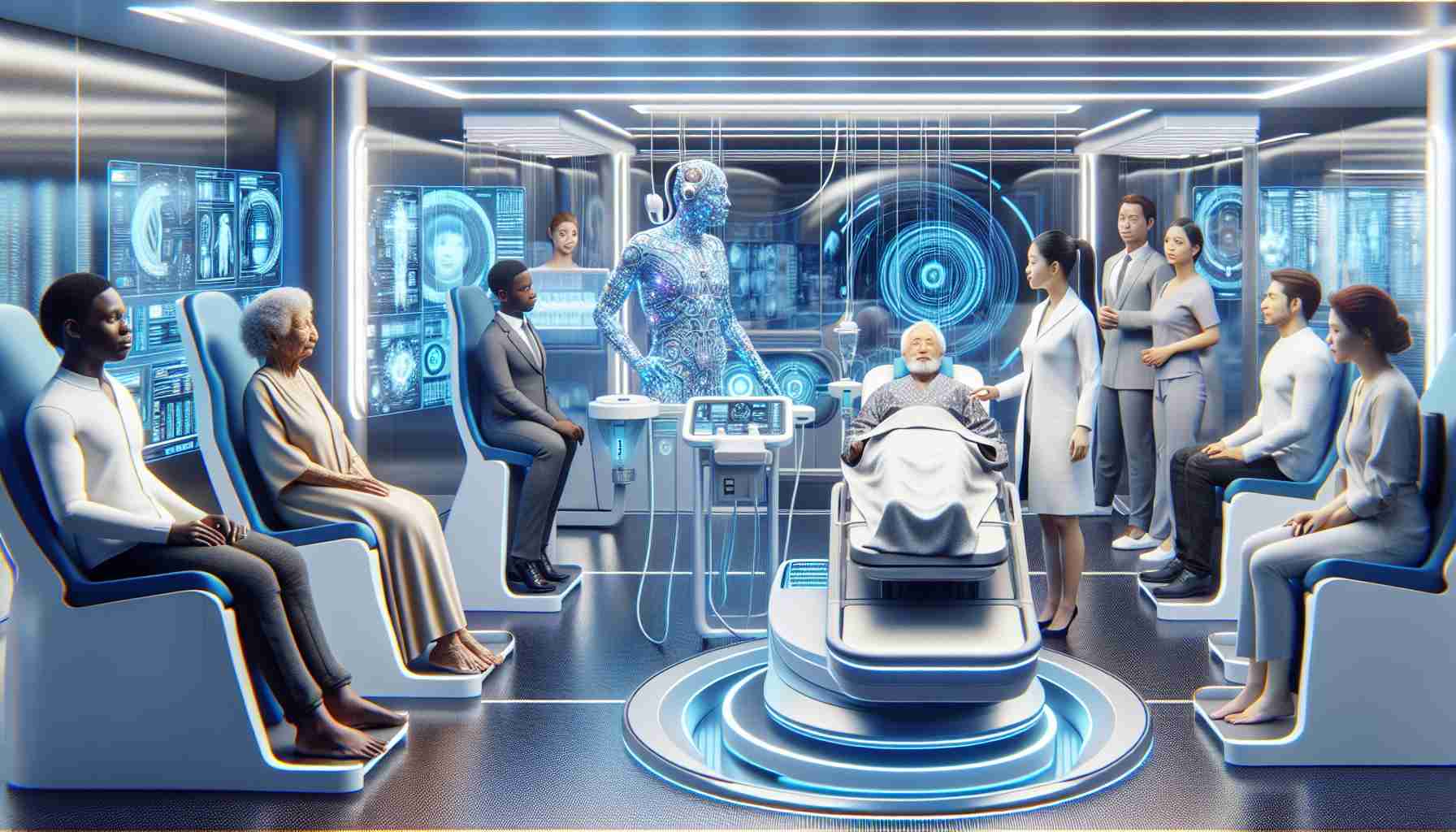Mental healthcare plays a crucial role in our relationships, productivity, and overall well-being. The demand for mental health services is increasing rapidly due to various factors such as urbanization and the fast-paced nature of life. However, access to high-quality care remains a major challenge in many parts of the world. Fortunately, the rise of artificial intelligence (AI) brings new hope for revolutionizing the field of mental healthcare.
AI has the potential to transform the way we give and receive mental health services. By automating routine tasks, AI can free up clinicians’ time and improve the patient experience. One of the key areas where AI can make a significant impact is personalization. Natural Language Processing (NLP) models can analyze an individual’s language and linguistic patterns to tailor interventions and therapies to their specific needs.
In addition, AI can track symptoms and progress more effectively than ever before. By detecting subtle changes in a patient’s speech, AI algorithms can provide real-time adaptive interventions and feedback during therapy sessions. This continuous monitoring allows for personalized care strategies, immediate feedback, and alternative coping strategies.
AI also has a role to play in patient flow management and precise diagnostics. In hospital settings, AI can streamline patient flow and minimize wait times. NLP technology can analyze unstructured clinical data, extract relevant information, and assist doctors in making accurate diagnoses and treatment scheduling.
Moreover, AI contributes to mental healthcare by processing and utilizing vast amounts of information. This leads to improved diagnosis and support for individuals with psychiatric concerns. For example, AI can successfully screen and analyze patients for anxiety disorder and major depression. It can also support the delivery of digital therapies, providing interactive modules and guided exercises to help people manage their symptoms.
AI’s impact extends to conditions such as Post Traumatic Stress Disorder (PTSD) and substance abuse. Virtual therapists, powered by AI, help patients feel more at ease, facilitating their recovery. AI-powered tools can monitor and track the symptoms of patients with PTSD and provide ongoing support. In the case of substance abuse, AI algorithms can offer real-time feedback, reminders for therapy sessions, and help prevent relapses by analyzing historical data and real-time information.
Furthermore, AI can track patients’ conditions by analyzing electronic health records, behavior patterns, social media posts, or voice data. This enables doctors to detect early signs of disturbing symptoms and provide timely interventions, balancing disease treatment with simultaneous mental health support.
The revolutionizing potential of AI in mental healthcare is immense. As technology continues to advance, we can expect AI to play an even greater role in improving access to high-quality care and transforming the way we understand and treat mental health. With AI as a powerful ally, the future of mental healthcare looks brighter than ever.
FAQ Section:
1. What is the role of mental healthcare in our overall well-being?
– Mental healthcare plays a crucial role in our relationships, productivity, and overall well-being.
2. What are some factors contributing to the increasing demand for mental health services?
– Factors such as urbanization and the fast-paced nature of life contribute to the increasing demand for mental health services.
3. What is the potential impact of AI in the field of mental healthcare?
– AI has the potential to transform the way mental health services are delivered by automating tasks, personalizing interventions, and improving patient care.
4. How can AI personalize mental health interventions?
– AI can use Natural Language Processing (NLP) models to analyze an individual’s language and linguistic patterns, allowing for tailored interventions and therapies to meet their specific needs.
5. In what ways can AI track symptoms and progress more effectively?
– AI algorithms can detect subtle changes in a patient’s speech, providing real-time adaptive interventions and feedback during therapy sessions. This continuous monitoring allows for personalized care strategies, immediate feedback, and alternative coping strategies.
6. What role can AI play in patient flow management?
– In hospital settings, AI can streamline patient flow and minimize wait times.
7. How can AI improve diagnostics in mental healthcare?
– NLP technology can analyze unstructured clinical data and assist doctors in making accurate diagnoses and treatment scheduling.
8. How does AI contribute to the support of individuals with psychiatric concerns?
– AI can improve diagnosis and offer support for individuals with psychiatric concerns by screening and analyzing patients for anxiety disorder and major depression. It can also offer interactive modules and guided exercises as part of digital therapies.
9. How does AI assist in the management of conditions like Post Traumatic Stress Disorder (PTSD) and substance abuse?
– AI-powered virtual therapists can help patients feel more at ease and provide ongoing monitoring and support for patients with PTSD. AI algorithms can also offer real-time feedback, reminders for therapy sessions, and help prevent relapses in the case of substance abuse.
10. How can AI track patients’ conditions and provide timely interventions?
– AI can analyze electronic health records, behavior patterns, social media posts, or voice data to track patients’ conditions and detect early signs of disturbing symptoms, allowing for timely interventions and mental health support.
Key Terms/Definitions:
– Artificial Intelligence (AI): Intelligence demonstrated by machines, specifically computer systems, to simulate human intelligence and perform tasks that would typically require human intelligence.
– Natural Language Processing (NLP): A subfield of AI that focuses on the interaction between computers and human language, enabling computers to understand, interpret, and generate human language.
Suggested Related Links:
– World Health Organization – Mental Health
– National Institute of Mental Health – Mental Health Topics
– MentalHealth.gov – Your Guide to Mental Health and Substance Abuse

